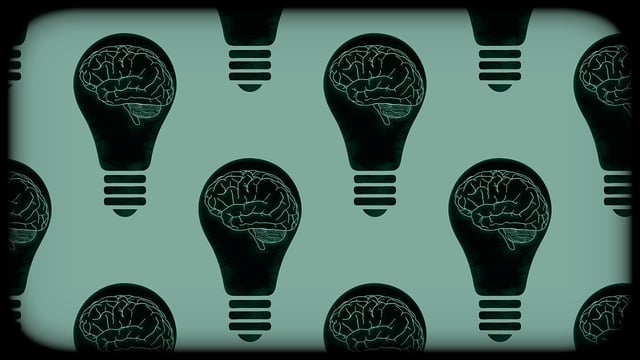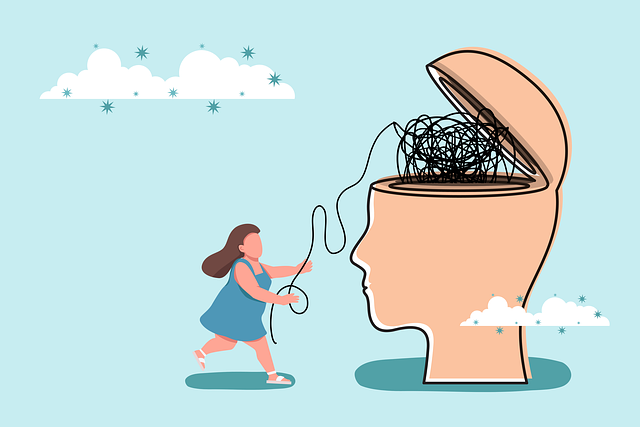Mental health policy requires a nuanced understanding of the complex interplay between individual experiences, such as therapy for young children addressing interpersonal issues, and broader societal factors impacting mental wellness. A holistic approach is vital, focusing on both symptoms and underlying contexts like social, economic, and cultural influences. Systemic barriers or support systems significantly affect mental health outcomes, emphasizing the need for access to quality services and advocacy through mental wellness journaling exercises. Innovative strategies, such as Mind Over Matter principles, offer effective therapy for young children's interpersonal issues. Early childhood mental health is shaped by these issues, requiring tailored interventions and safe spaces for expression. Advocacy, including early intervention strategies in primary care settings and public education on mental illness stigma, is key to transforming policies and ensuring equal access to services. Comprehensive Mental Health Education Programs integrated into school curricula have shown substantial benefits in identifying and intervening early, reducing rates of anxiety, depression, and other mental health disorders among young people.
Mental health policy analysis and advocacy are vital components of fostering healthy communities, especially when focusing on young children. This article explores critical aspects of mental well-being, from understanding complex policies to addressing interpersonal issues that impact early childhood development. We delve into the role of therapy as a game-changer in young minds, presenting case studies showcasing successful policy changes and their profound effects. By examining advocacy strategies, we aim to highlight innovative approaches to enhance access to essential mental health services for our future leaders.
- Understanding Mental Health Policy: A Framework for Analysis
- Identifying Interpersonal Issues in Young Children: Challenges and Risks
- The Role of Therapy in Early Childhood Development
- Advocacy Strategies for Improving Access to Mental Health Services
- Case Studies: Successful Policy Changes and Their Impact on Young Minds
Understanding Mental Health Policy: A Framework for Analysis

Understanding Mental Health Policy is akin to deciphering a complex symphony; each instrument represents a distinct aspect, contributing to the overall harmony or dissonance. This framework involves recognizing the interwoven threads of mental wellness, from individual experiences like therapy for young children addressing interpersonal issues, to broader societal factors influencing mental health outcomes. It requires a holistic approach, considering not just symptoms but the underlying social, economic, and cultural contexts that shape them.
Policy analysis should explore how systemic barriers or support systems impact mental wellness. For instance, access to quality mental health services, including Trauma Support Services, can be a game-changer for vulnerable populations. Mental Wellness Journaling Exercises can provide valuable guidance in navigating these policies, helping individuals and communities advocate for their rights and create a more supportive environment where mental health is prioritized.
Identifying Interpersonal Issues in Young Children: Challenges and Risks

Identifying interpersonal issues in young children is a complex task, often fraught with challenges and risks. Early childhood is a critical period for social and emotional development, making it crucial to address any interpersonal problems promptly. These issues can manifest as difficulties in forming connections, managing emotions, or exhibiting aggressive behaviors. Traditional therapy approaches may not always be effective for young children, emphasizing the need for innovative strategies that cater to their unique needs.
The concept of Mind Over Matter principles offers a promising avenue for tackling interpersonal issues in this demographic. By focusing on emotional regulation and inner strength development, therapists can empower young children to navigate social interactions with resilience. This proactive approach not only enhances their ability to handle interpersonal challenges but also fosters a sense of self-awareness and confidence, serving as a foundation for overall mental well-being.
The Role of Therapy in Early Childhood Development

Early childhood is a critical period for mental health development, and therapy plays a pivotal role in nurturing young minds. Interpersonal issues often emerge during these formative years, impacting a child’s emotional well-being and social skills. Effective therapy for young children involves tailored interventions that address specific challenges, such as anxiety, trauma, or behavioral difficulties. By incorporating evidence-based practices, therapists can create safe spaces for children to express their feelings, develop coping mechanisms, and enhance their ability to navigate interpersonal relationships.
The design of mental health education programs and communication strategies is essential to reaching young children and their families. Community outreach program implementation can facilitate early identification and intervention, ensuring that children receive the support they need to thrive. Through collaborative efforts involving educators, healthcare professionals, and community leaders, we can foster an environment where mental well-being is prioritized, promoting healthy development and resilience in early childhood.
Advocacy Strategies for Improving Access to Mental Health Services

Advocacy plays a pivotal role in shaping mental health policies and ensuring equitable access to services. One effective strategy involves raising awareness about the significance of early intervention for young children experiencing interpersonal issues, which can be a precursor to more severe mental illnesses. By advocating for integrated therapy options within primary care settings, communities can foster better identification and support for these vulnerable individuals.
Additionally, addressing the pervasive stigma associated with mental illness is crucial. Advocacy efforts should focus on educating the public about the benefits of seeking help, promoting self-care routines as preventive measures, and encouraging open conversations to destigmatize mental health concerns. These strategies collectively contribute to creating a more supportive environment where individuals feel empowered to prioritize their mental well-being.
Case Studies: Successful Policy Changes and Their Impact on Young Minds

Successful policy changes aimed at improving mental health services for young minds have demonstrated significant impacts, particularly in addressing interpersonal issues and providing therapy for young children. Case studies from various regions highlight innovative approaches that have led to improved access to mental wellness resources. For instance, implementation of comprehensive Mental Health Education Programs Design targeting schools has shown remarkable results in early identification and intervention of behavioral and emotional challenges among students.
These initiatives often include Social Skills Training, which equips young individuals with the necessary tools to navigate interpersonal relationships more effectively. As a result, studies have reported decreased rates of anxiety, depression, and other mental health disorders among children who participate in these programs. By prioritizing mental health education and integrating it into mainstream curricula, policy advocates are fostering a culture that promotes open conversations about emotional well-being, thereby reducing the stigma associated with seeking help for interpersonal issues.
Mental health policy analysis and advocacy are vital components in addressing interpersonal issues among young children. By understanding the framework of mental health policies, identifying risks, and leveraging successful case studies, we can foster better access to essential services like therapy for young children. Advocacy strategies that challenge societal barriers and promote awareness are crucial steps toward revolutionizing early childhood development, ensuring a brighter future for young minds.














